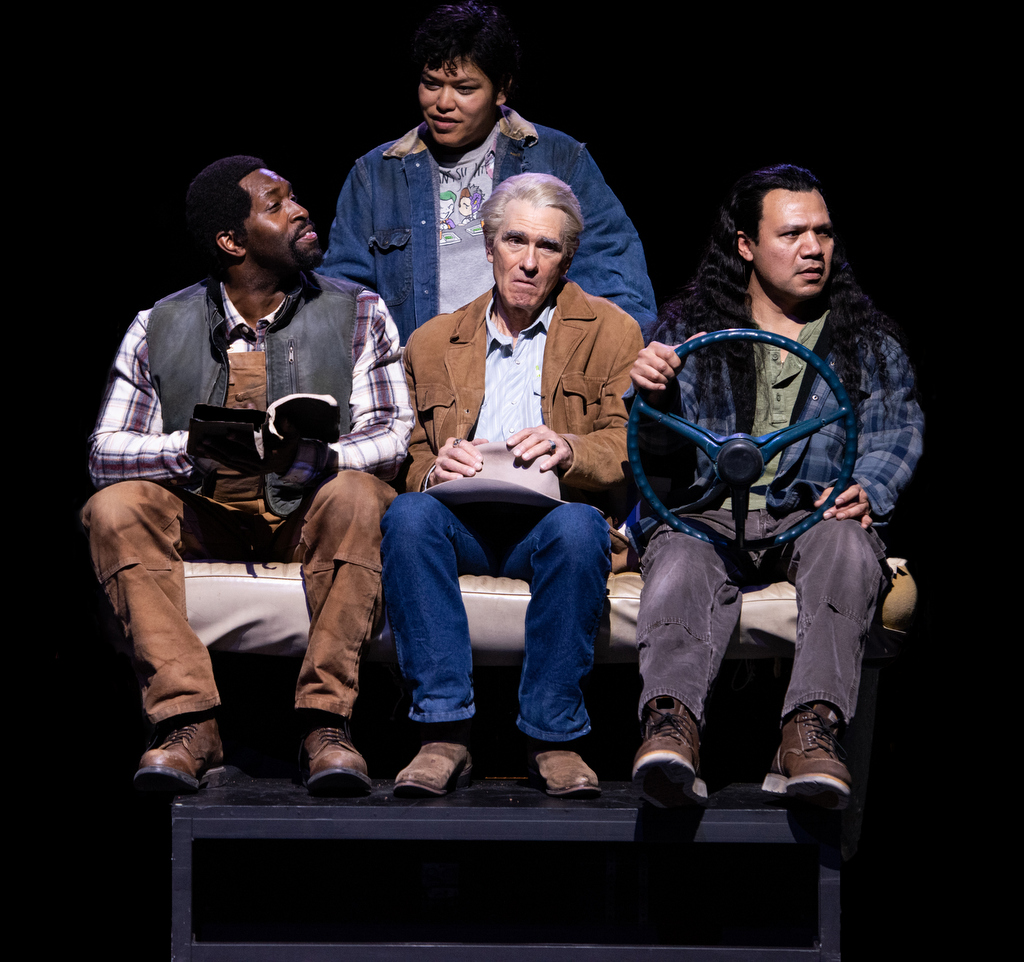[ad_1]
By Micha Green
AFRO D.C. Editor
[email protected]
If John Steinbeck and The Grapes of Wrath defined the American Dream, when published in 1939, Octavio Solis’ Mother Road modernizes the ideal with an examination of how shifting demographics, socio-economic times and racial perspectives play a role in living the dream. Arena Stage’s production of Mother Road is a spiritual and self-challenging moment for audiences who question their own perspective.
“Producing this play now- during the continuing debate about immigration- is deeply meaningful,” said Arena Stage Artistic Director Molly Smith in the playbill notes. “Mother Road is a fascinating way to connect separate heritages and show us how we all become connected through being Americans.”

There are dichotomies and, at times, collisions of ages, races and ideals, which in the end, create a beautiful narrative that make audiences root for multiple characters. One way Mother Road, directed by Bill Rauch, particularly has an impact on audiences is through its beautiful usage of the ensemble. The ensemble’s work allows for the road, on which the characters travel, to become a character in the play in itself. The journey is integral to the story and Mother Road itself lives, breathes and has a history and past.
In an exclusive interview, the AFRO connected with Cedric Lamar, who serves as James/ Cook and the production’s fight captain.
AFRO: Tell us about the characters of Cook, James and those you play in the chorus.
Cedric Lamar: James is an old friend of Martín’s who reappears in his life when Martín has essentially hit rock bottom. They share a history of seeing each other through the hardest of times. James offers a way out of Martín’s existential crisis by reminding him what faith feels like, and Martín in return offers James a piece of the farm that he might be inheriting. James’ affection, appreciation, and fascination with being more in tune with God and Mother Earth saved him from himself, so any chance to give back and honor the land that has given us so much is continually life changing for him.
Cook works at a run of the mill roadside diner in a small town in Arizona. He is proud of where he’s from, loyal to his friends, and good at his job.
AFRO: Why do audiences need to see Mother Road?
Cedric Lamar: Audiences need to see Mother Road because it’s far too easy to give up and feel cynical about our current state of affairs in this country, but Mother Road offers a possible way out of this mess. Forgiveness is key. Family is all around us if we’re willing to open our eyes. And the land will take care of us all if we take care of her. People deserve to feel a little hope in their lives to balance out the despair. Mother Road provides that and more.
AFRO: What can audiences take away from the play?
After seeing Mother Road, audiences will be able to take a look at their own lives and consider what legacy, family, and forgiveness means to them. Seeing others deal with their demons and darkest parts has a way of reminding you that we all still have work to do on ourselves. Theatre provides this safe space where this refection is encouraged, and this play offers some great examples of both the unintended consequences of not doing that work, and the possible peace awaiting for you once you do find the courage to dive into yourself in a meaningful way.
Mother Road runs at Arena Stage, 1101 Sixth Street Southwest, Washington, D.C., until March 8. For tickets and more information, visit: https://www.arenastage.org/tickets/1920-season/mother-road/.
[ad_2]
Source link
